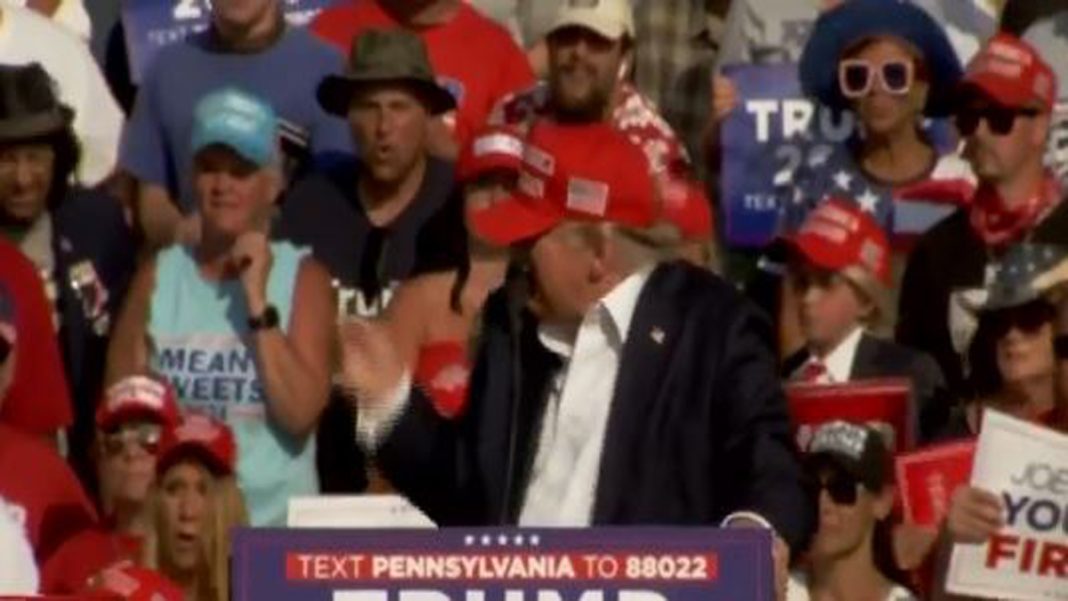In the wake of a harrowing incident at a rally in Butler, Pennsylvania, where former President Donald Trump narrowly escaped an assassination attempt, a bipartisan Senate committee has unveiled a report detailing significant security failures by the Secret Service. The findings have not only raised eyebrows but also ignited calls for reform within the agency tasked with protecting the nation’s leaders.
The report reveals a systematic breakdown in decision-making and communication that led to “foreseeable, preventable” lapses in security. Interviews with high-ranking Secret Service officials and local law enforcement exposed a disarray reminiscent of a comedic farce, where no one could definitively answer who was in charge of security arrangements. Sen. Richard Blumenthal, who is spearheading the investigation, likened the chaotic environment to an Abbott and Costello routine, underscoring the lack of clarity and accountability among the various teams involved.
One glaring oversight was the absence of visual barriers that could have obstructed the shooter’s line of sight. The report indicates that requests for essential resources, such as a surveillance team, were either denied or simply not made. In a stark contrast, First Lady Jill Biden had a surveillance team assigned to her event nearby, which only drew attention to the inadequacies in security measures for a crowd of approximately 15,000 attendees at Trump’s rally.
Furthermore, the report highlights that there were only two “official” meetings between the Secret Service and local law enforcement leading up to the event, with most interactions characterized as informal. This lack of structured communication resulted in misunderstandings about responsibilities. For instance, it was unclear who was responsible for securing the building from which the shooter eventually opened fire.
The security failures extended to a critical intelligence lapse. The Secret Service was aware of a credible threat from an Iranian assassination plot targeting Trump but failed to communicate this vital information to their field office in Pittsburgh. This oversight meant that additional security measures that could have been implemented were not considered, leaving agents on the ground unaware of the potential danger. As one agent noted in the report, any knowledge of an active threat should have triggered a reevaluation of security protocols.
Moreover, the report highlights that crucial security assets were not deployed. The lead advance agent stated that counter-surveillance teams, which could have been instrumental in identifying the threat before shots were fired, were not requested. The apparent inconsistency in security measures extended to the denial of a Counter Assault Team liaison, which could have provided tactical advice during the rally.
As the day unfolded, communication issues compounded the challenges faced by the Secret Service. Agents reported frequent radio problems, which hindered their ability to respond effectively to local alerts about the shooter. The sniper team that eventually neutralized the threat was notably out of the loop, receiving critical information too late to act decisively.
In light of these findings, there are urgent calls for a reevaluation of leadership within the Secret Service. Senator Rand Paul has emphasized that merely increasing funding will not rectify the human errors that contributed to the security failures. He, along with Blumenthal, has called for a complete overhaul of the agency’s practices and personnel, highlighting the need for improved management and resource allocation.
The implications of this report extend beyond the immediate security concerns; they reflect a broader issue of accountability within agencies responsible for national safety. As the nation grapples with these revelations, it becomes clear that systemic change is essential to restore public trust and ensure the safety of its leaders. The American people deserve an agency that operates with competence and vigilance, especially in an era where threats are ever-evolving and increasingly sophisticated. The call for reform is not just about preventing a repeat of past mistakes; it’s about safeguarding the very fabric of democracy itself.
